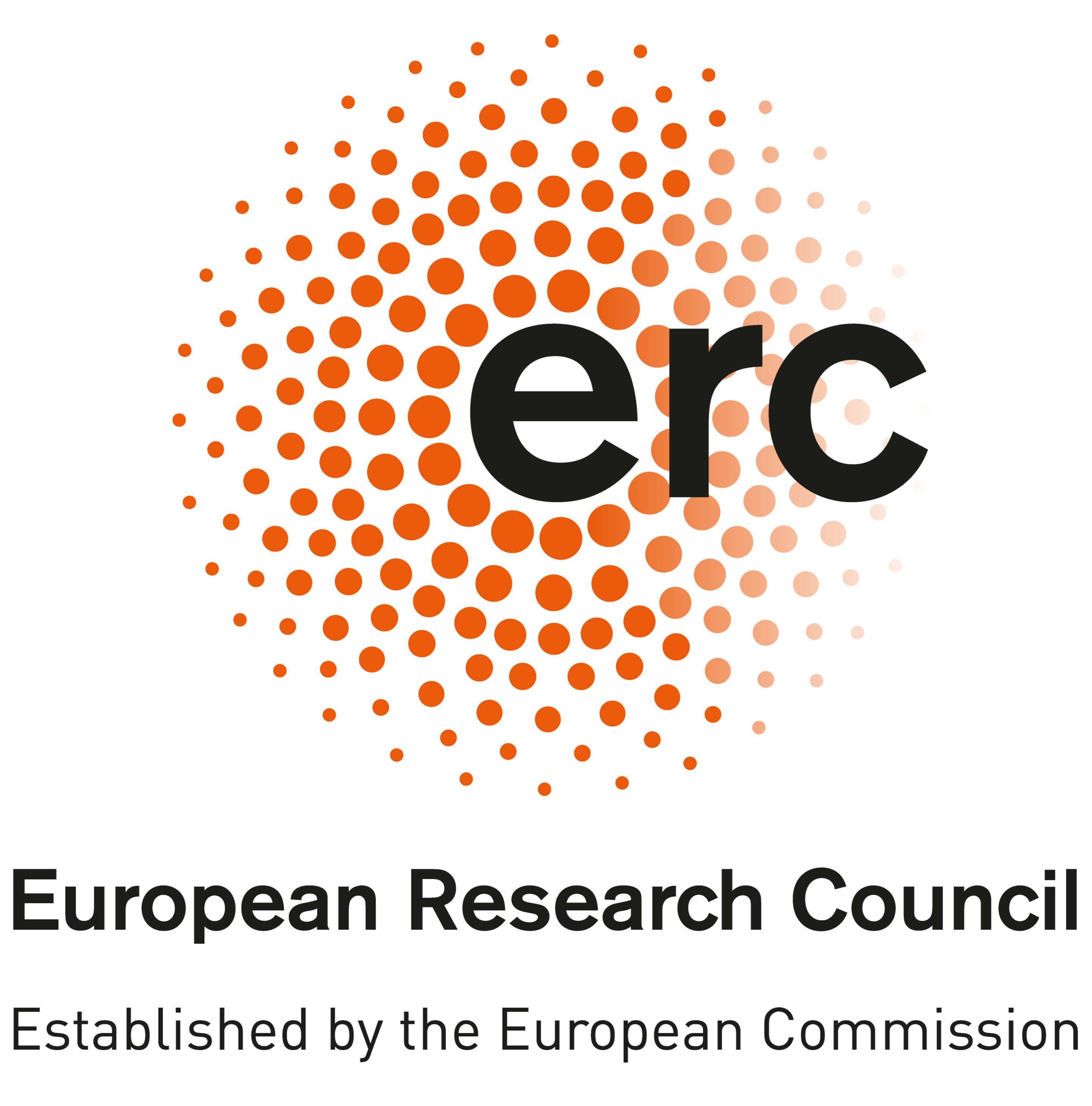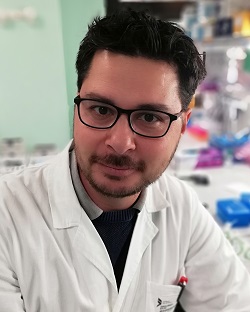
San Raffaele Telethon Institute for Gene Therapy
Genomics of the innate immune system


We are a multidisciplinary group that combines high-throughput and single-cell genomics, bioinformatics, genome engineering and functional studies to dissect principles of immune cell development and functions. Building on relevant mouse models and uniquely available clinical samples, we aim to decipher the complex networks of signaling pathways, transcription factors, chromatin regulators and non-coding RNAs that control gene expression in the innate immune system.
We are constantly looking for energetic and enthusiastic individuals at all career stages. Unsolicited applications are welcome and for more information contact Renato Ostuni.
Research activity
Our research focuses on two areas:
- Homeostatic and stress-induced development of the human innate immune system. In this project, the group uses cutting-edge genomics and single-cell transcriptomics technologies to explore stress-induced human myelopoiesis in sets of clinical samples collected longitudinally throughout allogeneic hematopoietic stem cell (HSC) and BM transplantation procedures. This research will uncover the cellular and molecular mechanisms of immune reconstitutions after chemotherapy, with direct implications for HSC gene therapy and treatment of hematological malignancies.
- Transcriptional control of macrophage activation in pancreatic cancer. The group aims to dissect how macrophage functions are affected by complex combination of environmental stimuli during homeostasis and disease, with a focus on cancer. Tumor-associated macrophages (TAM) frequently display a “mixed” polarization state characterized by concomitant pro- and anti- inflammatory activities that support, rather than suppress, tumor growth. In the lab, the aim is to define the phenotype and functions of TAM, and to develop innovative cell and gene therapy strategies to therapeutically reprogram macrophage activities.
Caronni N, La Terza F, Vittoria FM, Barbiera G, Mezzanzanica L, Cuzzola V, Barresi S, Pellegatta M, Canevazzi P, Dunsmore G, Leonardi C, Montaldo E, Lusito E, Dugnani E, Citro A, Ng MSF, Schiavo Lena M, Drago D, Andolfo A, Brugiapaglia S, Scagliotti A, Mortellaro A, Corbo V, Liu Z, Mondino A, Dellabona P, Piemonti L, Taveggia C, Doglioni C, Cappello P, Novelli F, Iannacone M, Ng LG, Ginhoux F, Crippa F, Falconi M, Bonini C, Naldini L, Genua M, and Ostuni R., IL-1b+ macrophages fuel pathogenic inflammation in pancreatic cancer. Nature, 2023 (in press)
Montaldo E, Lusito E, Bianchessi V, Caronni N, Scala S, Basso-Ricci L, Cantaffa C, Masserdotti A, Barilaro M, Barresi S, Genua M, Vittoria FM, Barbiera G, Lazarevic D, Messina C, Xue E, Marktel S, Tresoldi C, Milani R, Ronchi P, Gattillo S, Santoleri L, Di Micco R, Ditadi A, Belfiori G, Aleotti F, Naldini MM, Gentner B, Gardiman E, Tamassia N, Cassatella MA, Hidalgo A, Kwok I, Ng LG, Crippa S, Falconi M, Pettinella F, Scapini P, Naldini L, Ciceri F, Aiuti A and Ostuni R.,Cellular and transcriptional dynamics of human neutrophils at steady state and upon stress. Nature Immunology, 2022 | 10.1038/s41590-022-01311-1
Cilenti F, Barbiera G, Caronni N, Iodice D, Montaldo E, Barresi S, Lusito E, Cuzzola V, Vittoria FM, Mezzanzanica L, Miotto P, Di Lucia P, Lazarevic D, Cirillo DM, Iannacone M, Genua M, Ostuni R., A PGE2-MEF2A axis enables context-dependent control of inflammatory gene expression. Immunity, 2021 | doi: 10.1016/j.immuni.2021.05.016
Ballesteros I, Rubio-Ponce A, Genua M, Lusito E, Kwok I, Fernández-Calvo G, Khoyratty TE, van Grinsven E, González-Hernández S, Nicolás-Ávila JÁ, Vicanolo T, Maccataio A, Benguría A, Li JL, Adrover JM, Aroca-Crevillen A, Quintana JA, Martín-Salamanca S, Mayo F, Ascher S, Barbiera G, Soehnlein O, Gunzer M, Ginhoux F, Sánchez-Cabo F, Nistal-Villán E, Schulz C, Dopazo A, Reinhardt C, Udalova IA, Ng LG, Ostuni R, Hidalgo A., Co-option of Neutrophil Fates by Tissue Environments. Cell, 2020 | doi: 10.1016/j.cell.2020.10.003
Natoli G, Ostuni R., Adaptation and memory in immune responses. Nature Immunology, 2019 | doi: 10.1038/s41590-019-0399-9.
Ng LG, Ostuni R, Hidalgo A., Heterogeneity of neutrophils. Nature Reviews Immunology, 2019 | doi: 10.1038/s41577-019-0141-8.
Piccolo V, Curina A, Genua M, Ghisletti S, Simonatto M, Sabò A, Amati B, Ostuni R, Natoli G.. Opposing macrophage polarization programs show extensive epigenomic and transcriptional cross-talk. Nature Immunology, 2017 | doi: 10.1038/ni.3710
Ostuni R, Piccolo V, Barozzi I, Polletti, Termanini A, Bonifacio S, Curina A, Prosperini E, Ghisletti S, Natoli G., Latent enhancers activated by stimulation in differentiated cells. Cell, 2013 | doi: 10.1016/j.cell.2012.12.018
Zanoni I, Ostuni R, Marek LR, Barresi S, Barbalat R, Barton GM, Granucci F, Kagan JC., CD14 controls the LPS-induced endocytosis of Toll-like receptor 4. Cell, 2011 | doi: 10.1016/j.cell.2011.09.051.
Zanoni I, Ostuni R, Capuano G, Collini M, Caccia M, Ronchi AE, Rocchetti M, Mingozzi F, Foti M, Chirico G, Costa B, Zaza A, Ricciardi-Castagnoli P, Granucci F., CD14 regulates the dendritic cell life cycle after LPS exposure through NFAT activation. Nature, 2009 | doi: 10.1038/nature08118.










